WHAT THIS STORY TELLS US
There is no book in the world which contains so many interesting stories as the Old Testament. It is full of adventures, full of wonderful actions and strange occurrences, and as soon as we have finished one of these exciting stories we find ourselves at the beginning of another. The Old Testament, then, is a Book of Heroes . Eight names in this book stand out from all the rest, their stories being so wonderful that the world can never forget them. These names are Abraham, Joseph, Moses, David, Job, Isaiah, Solomon, and Daniel. Before we come to our Bible Stories, in which we shall meet these great figures again and again, we may read here something of the characters of the greatest heroes and heroines of the Bible, beginning with the eight great men whose names and lives stand out like gold among all others. All our first stories are from the Old Testament.
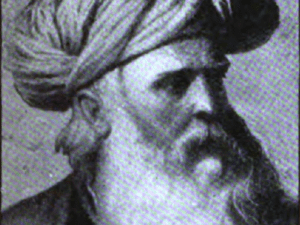
ABRAHAM’s story is a tale which takes us far back in the world’s history, when men’s riches consisted in the number of their flocks and herds. Abraham was a very rich man, for he had many oxen and sheep and camels, and a vast retinue of servants. He lived a happy life in the sunshine and the open air, and he liked to sit at his tent door of an evening and look across the plain at his many cattle going to the river to drink, and at the long line of his servants coming slowly back from the wells with water-pots upon their heads. He was happy, not so much because he was rich, but because he loved God, and trusted Him in all things. When his faith was put to a terrible test he did not shrink from it. He was so sure that God’s way must be the right way that he could not refuse to go upon it. So Abraham stands in the history of men as the great example of faith. When we hear of any man who trusts God with all his heart, we say of him : “That man has the faith of an Abraham.” Abraham is the quiet, peaceful, God-fearing man who obeys God in all things, without any complaint and without even a question, however terrible and hard may be the work to which God calls him.
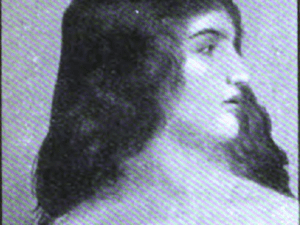
JOSEPH’s story is the wonderful romance of a young genius, the favourite of his father and the envied of his brothers. Joseph used to dream dreams, and these dreams made him more hated by his brothers than ever, for in these visions he saw that one day he would be raised high above his brothers. So the favourite son was taken by these brothers and sold as a slave. He passed out of his own land, and was carried to a foreign country, and presently he became a servant in the palace of the King. It seemed now that his life might become prosperous and happy, even though he was living in an alien land, for in the palace of a rich king men may rise to wealth and power. But the wife of Potiphar, ‘one of the King’s ministers, was not a good woman, and because Joseph was honourable she hated him, and said words against him, so that the King was angry and cast Joseph into prison. For many years Joseph lingered in the prison, but it came to pass, as we shall read when we hear the whole story, that the great King lifted him one day out of prison, and set him over his whole house to rule it for the happiness of the people. And Joseph prospered the land. He wore the King’s ring upon his finger. He rode in the King’s chariot. And when he drove. forth the people cried: “Bow the knee!” And they bowed themselves before him. Then came the day when Joseph’s dreams proved true, for his brothers came into this land during a great famine to buy corn, and they bowed before Joseph. And Joseph made them bring down their father-the father who had loved him so greatly, and he gave them the richest land in the great King’s country, and he loved his father and he forgave all his brothers, and they lived in this rich land happily and cheerfully for many years.
MOSES, PERHAPS THE WISEST RULER WHO EVER LIVED
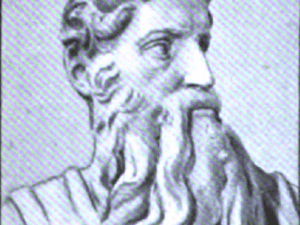
Moses is a name which reminds us at once of a wise ruler, perhaps the wisest ruler that ever lived. He was born in Egypt at a time when the King of Egypt was afflicting the Hebrews, and just after the King had given orders that every male Hebrew child should be killed. The mother of Moses, who was a Hebrew woman, loved her little son too well to have him cruelly slain. So she made a cradle of bulrushes, and covered it with slime and pitch, and put the child therein, and laid him in the flags by the river. Then, when the King’s daughter came down to bathe in the river, the sister of the child stood near; and when the Princess found the baby and was pleased with it, the sister drew close to her, and said: Shall I go and call to thee a nurse of the Hebrew women, that she may nurse the child for thee?” This idea pleased the Princess, and, though she knew it not, the mother of the little child was brought to nurse him. So Moses, although he was a hated Hebrew, grew up in the King’s palace, and he grew up loving his own people, and all the luxury and splendour of the King’s palace could not make him forget his people. Then, when the time came for God to deliver the poor Hebrews out of the hands of their oppressors, it was Moses who was chosen to stand before the King and warn him of God’s anger against his tyranny. And it was Moses who presently led the poor Hebrews out of this cruel land towards a happy land promised to them by God; and he gave them laws from Heaven-the wisest laws in all the world-and he ordered them to obey certain customs which made them healthy and strong, and kept them free from sickness and disease. Many battles did they fight under Moses during their long and difficult progress to the Promised Land, so that we now look back upon Moses not only as a most wise and careful ruler, but also as a great and successful soldier. He was certainly one of the greatest and wisest men that have ever lived.
DAVID, PERHAPS THE MOST LOVED OF ALL BIBLE HEROES
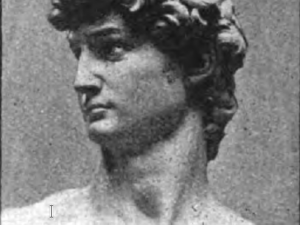
David is a name more dear to men than any other name in the Old Testament. Perhaps he is the most loved of all the men in the whole Bible. For his is a story which shows us how splendidly and bravely a man may fight against terrible temptations, and keep on fighting in spite of many dreadful falls. David is so completely a man, so completely like all the rest of us, that we love him and read what he has to say to us with affection and tenderness. He was a great king. In those days kings not only went at the head of their armies; they also loved to beautify their houses and indulge themselves with all the wonderful things of Art. David was a great captain, a great poet, and a great singer. We think of him as a tall, kingly man, with bronzed face, sad, dark eyes, and long black hair, which fell upon his shoulders. He loved God, and it was one of his chief pleasures to make songs concerning the power and greatness of the wonderful God who had made the heavens and the earth and all that is contained in them.
But every now and then his passionate nature hurled him into sin. He did things unworthy of himself, and for days and weeks he would be plunged into the blackest misery, upbraiding himself for his folly and calling upon God to forgive him. Through all his passionate life-and once he committed a very grievous and cowardly sin -he never abandoned his love for God; never became a really wicked man rejoicing in evil and mocking good, but always struggled on towards God, hoping and praying that one day he would gain the victory over his own body. Because he never lost heart we admire him; because he always loved God we follow him; and because he wanted so hard to be good, even while he was wicked, we understand him and we love him.
SOLOMON, THE WISE AND WONDERFUL SON OF DAVID
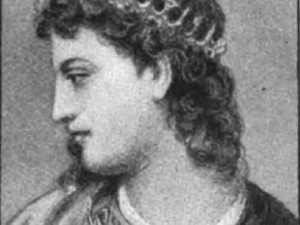
Solomon is not such a lovable man as his father, David; but in some ways his story is even more interesting. For Solomon, without having any great and beautiful love for God, discovered that without God he could not bear to live. He was a very rich man, a very powerful man, a very proud and ambitious man, and, in addition to all this, he was a very great and wonderful scholar. His palace and his temple, and all the great buildings he set up, were the wonders of the world. People came out of all lands to see the magnificence of Solomon. There had never been such magnificence in the world before. One powerful queen, who came to see what all the world was talking about, exclaimed, when she saw the wonderful glory of Solomon in his kingdom, that not half the truth had been told to her.
NOT ALL HIS GLORY COULD MAKE SOLOMON A HAPPY MAN
But in the midst of all this Solomon was unhappy. He could not satisfy himself. Not all the gold and ivory and precious stones in the world could bring rest to his heart. We say now, when we hear of any rich man devoting all his life to building at beautiful house for himself, that he is another foolish Solomon. For the great and powerful Solomon found that there was no lasting pleasure in these things. He ate the richest meats and drank the costliest wines; he arrayed himself in the grandest purple and set upon his head a crown of the purest gold; but still he was only filled with dissatisfaction and unrest. Then, as he was a great scholar and a poet, he thought he would find joy in the making of books. So he spent days and nights in composing lovely poems and wise proverbs, and everybody praised them, and he heard all the world exclaiming at his wisdom and his inspiration. But still he was unhappy. And at last he saw, when he had exhausted all that the world could give him, that a life lived without God is a life lived in vain, and he prostrated himself before God, and became humble like a little child. The wisdom of Solomon was his discovery that nothing can satisfy man’s heart but the love of God.
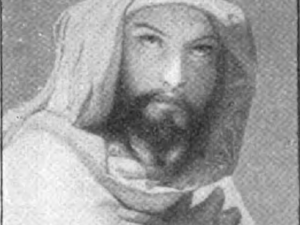
DANIEL’s story is one of courage. There is a well-known hymn called “Dare to be a Daniel.” It means that however much we may have to suffer, we must always have the courage to stand up for, and, if necessary, die for, what we know to be right. Daniel’s name is like a trumpet-call to men who have to suffer for doing what is right. Daniel is a man who never feared. Not all the cruelties and tortures of wicked men men could turn him from doing what he knew was his duty to God. The name Daniel means “God is my Judge,” and never did man so truly live up to the meaning of his name as this brave and noble man who thought only of God in all that he said and did. He was born of a princely lineage, and when he was quite a boy he was carried to Babylon. Nebuchadnezzar, the great King, kept Daniel at his side. and Daniel was always warning him against evil courses and interpreting the dreams which came to the King as warnings from God. When the King went mad, Daniel acted as viceroy, and rebuked the people for idolatry, and warned the greatest in the land of the doom overhanging those who lived their lives as if there were no God and Judge over all the earth. Then the people were angry, and because he would not unsay what he had said he was thrown into a den of lions. But the lions did not kill him, and he came out of the lion’s den without harm, and King Darius set him over his kingdom. Finally he died in exile. He might have been one of the richest and strongest men in the world, but because he feared God and because God was his Judge he preferred a life of suffering and torment, and lived always in the midst of many and great dangers. He could not forsake truth. He could not deny God for all the pomp and splendour of the earth.

JOB is a name which you have probably heard from your earliest years. It stands in the world for patience. He was a wealthy man who feared God and lived a clean, simple, and patriarchal life in the land of Uz. He had everything he could wish for many flocks and herds, a host of friends, a loving and affectionate family, and the happiness of a clean conscience. Many people must have said of him: “Ah, it is easy for Job to serve God! If we had as many flocks and herds We, too, should be able to serve God. God has blessed Job plenteously, and so it is only natural that Job should praise God.” But in the midst of all his great health and wealth, calamities of the most tragic kind overcame the patriarch. He was stripped of his flocks and herds, bereft of his family, smitten with hideous pains and diseases, and he lay for weeks and months at death’s door without any really true friends to love and care for him. His lot could not have been worse. From health and riches, he was thrown suddenly to poverty and disease. But his faith in God lasted all through his distress. God had blessed him, and now God was trying him, he said; God surely would do only what was right, and he would praise God even though He slew him. It was a most splendid exhibition of patience under tribulation. To bear sorrow as Job bore it, not to grumble and complain when our blessings and comforts are taken away from us, is the lesson we learn from his life. He came in the end to be richer and more prosperous than he had ever been before, and in that happy state he had the great joy of knowing that he could praise and love God as much and as sincerely under affliction as he could under the smile of the Heavenly Father’s blessing.
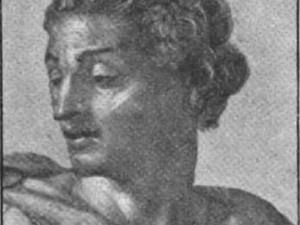
ISAIAH, whose name means Salvation of Jehovah, is the greatest prophet in the Old Testament, and he is the chief link between the Old World before the Cross and the New World since Jesus came. He is called the “Evangelist Prophet,” because while he denounced the wickedness of the age in which he lived, he also prophesied the good news of a better age when Christ should come into the world and teach men to call Jehovah their Heavenly Father. We know very little of Isaiah except that he was married man, and that his wife prophesied with him. A prophet is one who spends his life in lonely communion with God, praying often, meditating often, and only speaking or writing when he hears in his soul the word of Almighty God. This was how Isaiah lived. No prophet ever saw the future more clearly than Isaiah, and no prophet ever expressed in more beautiful language the things that he saw. Isaiah is certainly one of the greatest heroes of the Old Testament, not so much for what he did, though he must have been a fearless man, but rather because he has written for us some of the most lovely things in the literature of all the world, and chiefly because he foresaw the coming of the Perfect Man-Jesus. I think, when you are older, that more than all the other heroes of the Old Testament, more even than the great human-hearted David, you will love and reverence and cherish the name of Isaiah, the sweet singer of the Salvation of God.
Now, although these are the names which stand out most clearly from the pages of the Old Testament, there are others many others-almost as splendid. We shall find, when we come to read the Bible for ourselves, that there are heroes on almost every page. We shall read, for instance, of Noah, who built a mighty Ark, and when the floods came upon the earth went into the Ark with his family and two of every living thing, and floated upon the face of the waters until the storm had abated, the waters were assuaged, and once more the sun shone upon green fields and happy woodlands. We shall read, too, of those famous brothers Esau and Jacob, the twin sons of a venerable patriarch named Isaac. Jacob was the favourite of his mother, Rebekah, and she contrived that he should receive the chief blessing of Isaac, his father, instead of Esau, the eldest son. When Esau came in to his father and asked for his blessing, the old blind man said: “Who art thou?” And he said: “I am thy son, thy first-born, Esau.” Then Isaac trembled very exceedingly, and said: “Who? Where is he that hath taken venison, and brought it me, and I have eaten of all before thou camest, and have blessed him? Yea, and he shall be blessed.” And when Esau heard the words of his father, he cried with a great and exceeding bitter cry, and said: “Bless me, even me also, O my father.” But Isaac had given the chief blessing to Jacob, and he could not take it away. Nevertheless, he gave a blessing unto Esau also, and when Esau arose and went out from his father he hated Jacob his brother, and determined to kill him. But, as we shall read when we come to their story, the two brothers became friends, and Jacob, after a life of long wandering and many adventures, developed into a good man, and God called him Israel and made him the father of the great Hebrew people. Then we shall read of Samuel, the noble and inspiring figure on whom the Jews look as one of the great heroes of their history.
ONE OF THE GREATEST OF HEROES, SAMUEL, WHO MADE A NATION GOOD
He was a pure and sacred man who found the Hebrews living in dreadful sin and lawlessness, and by his quiet wisdom, his firmness, and his obedience to God lifted them up and made them better and kinder people. To make a whole nation good is a work that only the greatest of heroes can achieve, and as we read what Samuel did we are filled with admiration for his wisdom and his strength. It was Samuel who gave the Jews their first king. This king, Saul, is a very great figure in the Bible. He was a handsome, noble-looking young man, almost a giant in height, and very gracious in his manner. He listened to wise old Samuel at first, and ruled the people justly. But as he grew older he would listen to no one but himself. He became dark of brow and was plunged often into moods of the blackest despair. He gave way to fits of the fiercest anger. He became haughty, arrogant, and vain. Everybody was afraid of him. Even the beautiful shepherd-boy named David, whose music lulled the King’s melancholy, became hateful to the moody monarch, and he sought to slay him.
THE SAD LIFE OF KING SAUL AND THE WILD, STRANGE FIGURE OF ELIJAH
King Saul abandoned God; he drove faithful old Samuel from him-Samuel never ceased to love the King, in spite of his wickedness and cruelty -and finally, for disobeying God’s word, he was wounded in battle, and, falling upon his own sword rather than be taken a prisoner, he perished miserably, he and his son Jonathan. Then there is the wild, strange figure of Elijah, who seems to us, when we read about him, like a whirlwind sent to rouse the whole world from wickedness. He stood up before King Ahab and boldly rebuked him for his ungodly ways. He prophesied famine. “As the Lord God of Israel liveth, ” he ex -claimed , “before whom I stand, there shall not be dew nor rain these years but according to my word.” And while there was famine Elijah was fed by ravens; and when the brook dried up by which he was living he went to a widow-woman, whose meal never wasted while she fed him, and whose son he raised up for her from a state of death. Then Ahab, the King, sent for him, and said unto him: “Art thou he that troubleth Israel?” And he answered: “I have not troubled Israel; but thou, and thy father’s house, in that ye have forsaken the commandments of the Lord.” Then he gave a proof to Ahab that the god the King worshipped was no god, mocking the prophets of that false god; and afterwards he proved that the true God is indeed Very God, and slew all the prophets of the false god.
Then, of course, we shall read with delight the story of Samson, whose name stands for all time as the hero of great bodily strength. When we hear of any very strong man, we say: “He is another Samson,” because everybody reads the Bible, and everybody knows of the strong man who was called Samson. Samson had tremendous strength, so that he could rend lions, and pluck up the gates of cities, and slay armies with his own right arm.
SAMSON, THE MAN WITH THE STRENGTH OF A LION
There is no hero among the Greeks so wonderful as the great Hebrew Samson. But, like many other heroes of old time, he surrendered his strength to easy living, and he allowed a wicked woman to know that if his hair were cut off his strength would go; and she cut off his hair in his sleep, and his enemies caught him and put out his eyes. After this he was taken out of prison and led about by a little lad, and the people mocked the strong man who had become so weak. But at a great feast given by the lords of these Philistines, he said to the little lad at his side: Suffer me that I may feel the pillars whereupon the house standeth, that I may lean upon them.” And he leaned upon the pillars, and said: “Let me die with the Philistines.” And his strength came back to him, and he bowed himself with all his might, and the house fell upon the lords and upon all the people that were therein. So Samson died, killing many of his enemies.
